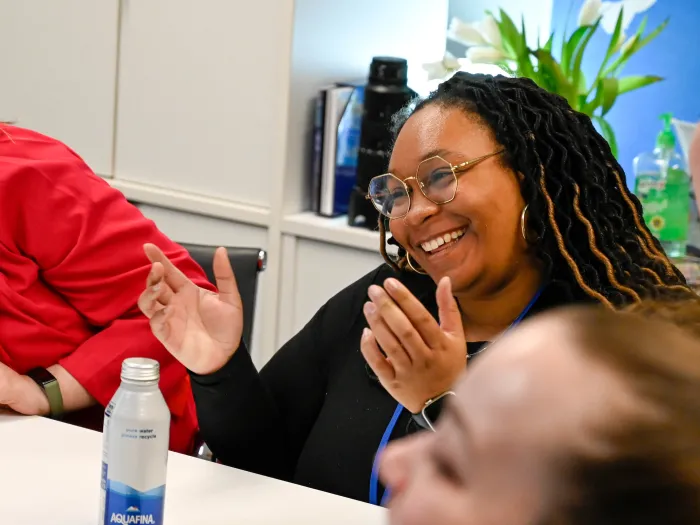Palestinian speakers say Middle East change is urgent
Luncheon sponsored by Israel Palestine Mission Network

{{ image 1 }}
Nearly 90 people gathered Monday to hear about the urgent need for a solution in the Israeli/Palestinian conflict.
Dr. Muna Mushahwar-Koussa, a Palestinian Christian ophthalmologist, said things are getting worse by the day.
“The voice of churches is still there, but churches are under pressure from Israel not to speak out,” she said. “Palestinian youth can’t walk down the street without being suspected of something or shot at. You cannot have dignity under occupation. God did not intend for us to live under injustice.”
The luncheon, sponsored by the Israel Palestine Mission Network, invited three Palestinian women to share their work and concerns in the Middle East.
Naveen Ayesh, an activist in St. Louis, spoke on “defending the right and moral obligation to boycott” as economic witness for Palestinian rights. She described how the St. Louis community fought and defeated state legislation that would have suppressed “freedom of people and businesses” to speak up.
Sandra Tamari is with the Adalah Justice Project, an organization that defends the rights of Palestinians in Israeli courtrooms.
“When we talk about values of everyone being equal in God’s eyes, the solution is clear,” Tamari said. “People can come up with solutions that respect the rights of all, and I’m hopeful that the church is looking at what equality can look like. That’s the only thing that will get us through this.”
The IPMN is an all-volunteer organization that aims to educate Presbyterians and other concerned individuals and to work for change in the lives of both Israelis and Palestinians, especially in East Jerusalem, West Bank and Gaza.
Over the past 14 years, the network has helped church partners in Palestine create jobs, promote economic development, maintain schools and hospitals and make affordable and safe housing available to Palestinians.
You may freely reuse and distribute this article in its entirety for non-commercial purposes in any medium. Please include author attribution, photography credits, and a link to the original article. This work is licensed under a Creative Commons Attribution-NonCommercial-NoDeratives 4.0 International License.




